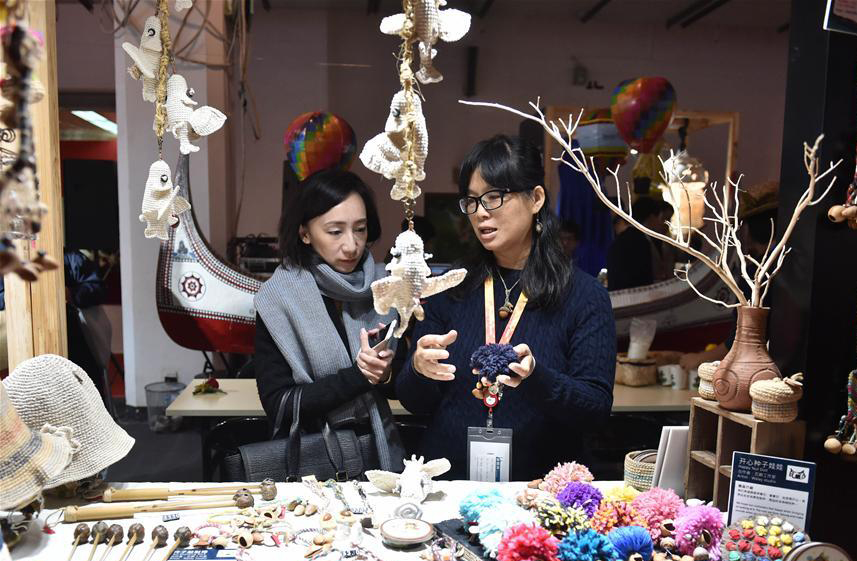Cultural consumption to propel economic growth

Visitors at the Cultural and Creative Pavilion of Taiwan, China at the 11th China (Beijing) International Cultural and Creative Industry Expo held from Oct. 27 to 30
More than 2 million people from China and abroad attended the 11th China (Beijing) International Cultural and Creative Industry Expo, which was held from Oct. 27 to 30.
Deals worth nearly 100 billion yuan were signed at the expo, demonstrating the rapid expansion of the domestic cultural market and its potential to become a new engine for economic growth. But the cultural industry still only accounts for a small share of the economy.
China’s economy has entered a new stage in which per capita GDP, urbanization rate and the contribution of the service sector to GDP have all reached critical points, laying the the macroeconomic foundations for cultural consumption in the next stage, said Jin Zhun, an associate research fellow from the National Academy of Economic Strategy at the Chinese Academy of Social Sciences.
Cultural consumption will gradually become a rigid demand source as well as the backbone of consumption, Jin added.
Jin Yuanpu, director of the Cultural and Creative Industries Studies Center at Renmin University of China, pointed out that cultural and artistic consumption is unlike material consumption. For example, works of art are durable and their benefits do not decrease marginally after consumption like other products.
Cultural consumption has many of the qualities of a public good, such as non-exclusivity, Jin said, adding that cultural products can be shared by many people, and a large consumer population will generate economies of scale.
Competition between countries relies not only on hard power but also on soft and smart power, Jin Zhun said. He emphasized consumption as a driving force for China’s economic growth, and culture for consumption.
Jin Yuanpu said information consumption is a major facet of cultural consumption. The widespread application of information technology, especially the mobile Internet, has led to a surge in Internet users domestically, he said.
It also has changed consumption habits while reshaping the consumption process promoting the development of sharing economy and other new forms of consumption, Jin Yuanpu said. The Internet’s integration into tourism, culture and entertainment not only drives consumption in different fields but also provides new opportunities for infrastructure construction in cloud computing and big data, as well as for intelligent terminal technology and products like wearable devices, he said.
Jin Zhun pointed out that institutional barriers to the development of cultural consumption still exist. For example, he said, the current land-use monitoring system is compatible with industrial society but not adapted to the relatively “soft” and varied cultural field.
A rigid land-use plan fails to provide the land for cultural enterprises and is incapable of opening the door for the sector, given the high price of commercial property, Jin Zhun said. Without deep reform, progress in the cultural industry will be difficult, he said.
Fan Yugang, a professor from the Party School of the Central Committee of CPC, said people are increasingly pursuing cultural satisfaction, so the commercialization of culture has become a major trend.
To promote China’s cultural consumption, Jin Yuanpu also suggested that consumers should be treated as one market entity, so their cultural demands should be discussed from a market perspective.
Zhang Jie is a reporter at the Chinese Social Sciences Today.
